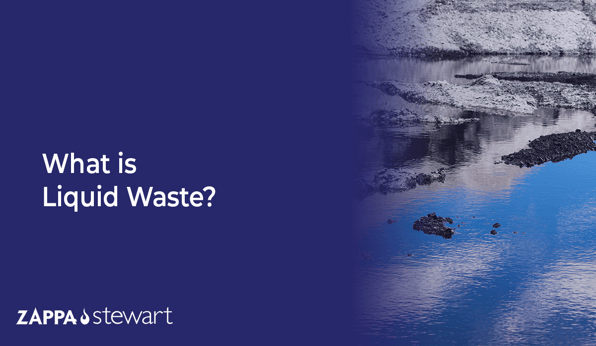The smart Trick of Reclaim Waste That Nobody is Talking About
The smart Trick of Reclaim Waste That Nobody is Talking About
Blog Article
All about Reclaim Waste
Table of ContentsThe Ultimate Guide To Reclaim WasteSome Known Details About Reclaim Waste The Only Guide for Reclaim WasteSome Known Facts About Reclaim Waste.The Only Guide to Reclaim Waste
Check out the types, occurrences, and types of fluid waste. Domestic sewage waste describes the waste and items from a property septic container. This type of waste is produced by people in residences, colleges, and various other structures. This only includes septic storage tanks that have a drainpipe area. The correct management and disposal of residential sewer waste require liquid waste to be transferred to a sewage therapy plant where the proper approaches and devices are related to purify and take care of waste.
Industrial waste frequently consists of prospective risks, such as flammable products or a combination of liquid and strong waste products, and needs an advanced and comprehensive disposal process. The disposal of industrial waste normally involves the filtering of waste before transport to guarantee safe and correct disposal. Hazardous waste is created from results and drainage of commercial processes and manufacturing.
This kind of waste can not utilize the same sewer administration transportation or processes as septic or industrial liquids. The hazardous waste management procedure requires the assessment and screening of liquid waste prior to it undertakes the disposal procedure (liquid waste removal). Runoff waste is the fluid waste that comes from runoff and excess stormwater in highly inhabited areas or cities
Drainage waste can create contamination and flooding if not taken care of correctly. Discover much more concerning drain cleaning and waste monitoring. Making certain correct waste monitoring can protect against disasters and decrease environmental damage. Both people in property setups and experts in business or manufacturing industries can benefit from understanding the procedures and guidelines of liquid waste management.
The 5-Minute Rule for Reclaim Waste
Contact PROS Providers today to learn more about our waste management and disposal services and the correct ways to look after the fluid waste you create.
(https://fliphtml5.com/homepage/kekhp)Do you recognize what takes place to your water when you disengage, flush the commode or drain pipes the cleaning equipment? No? Well, it deserves recognizing. This so-called 'wastewater' is not only a vital source but, after treatment, will be launched to our land, waterways or the sea. Utilized water from toilets, showers, baths, kitchen area sinks, laundries and industrial processes is recognized as wastewater.

water made use of to cool down machinery or tidy plant and equipment). Stormwater, a type of wastewater, is runoff that moves from agricultural and city locations such as roofing systems, parks, yards, roadways, courses and rain gutters right into stormwater drains pipes, after rain. Stormwater moves without treatment straight to local creeks or rivers, ultimately reaching the sea.
Some Ideas on Reclaim Waste You Need To Know
In Queensland, most wastewater is dealt with at sewage treatment plants. Wastewater is transferred from domestic or commercial sites with a system click this of sewage systems and pump stations, recognized as sewerage reticulation, to a sewer therapy plant.
The Division of Natural Resources advises regional federal governments concerning handling, operating and preserving sewage systems and therapy plants. In unsewered areas, neighborhood federal governments may need owners to install private or household sewer treatment systems to treat residential wastewater from commodes, kitchen areas, bathrooms and laundries. The Department of Natural Resources authorises making use of household systems when they are proven to be effective.
In some new subdivisions, therapy of some stormwater to remove litter, sand and gravel has started using gross toxin traps. Wastewater treatment happens in four phases: Removes strong issue.
Uses small living microorganisms understands as micro-organisms to damage down and remove staying dissolved wastes and great particles. Micro-organisms and wastes are included in the sludge.
Our Reclaim Waste Statements
Nutrient elimination is not offered at all sewage therapy plants due to the fact that it needs expensive specialised equipment. It is becoming a lot more common in Queensland. Clear liquid effluent produced after treatment might still include disease-causing micro-organisms. If this effluent is launched right into rivers such as rivers or the sea, the micro-organisms will at some point pass away out.

This usually indicates wastewater has actually to be dealt with or pollutants eliminated prior to it can be released to waterways. Many wastewater flows into the sewerage system. Under the Act, neighborhood governments administer approvals and licences for ecologically appropriate tasks (ERAs) involving wastewater launches that could have a regional influence. The department carries out approvals and licences to Periods involving wastewater releases that may have a local or statewide influence.
The Definitive Guide for Reclaim Waste
Tracking gives accurate details regarding water quality and can validate that licence problems are being met. The details acquired through surveillance supplies the basis for making water high quality decisions.
Report this page